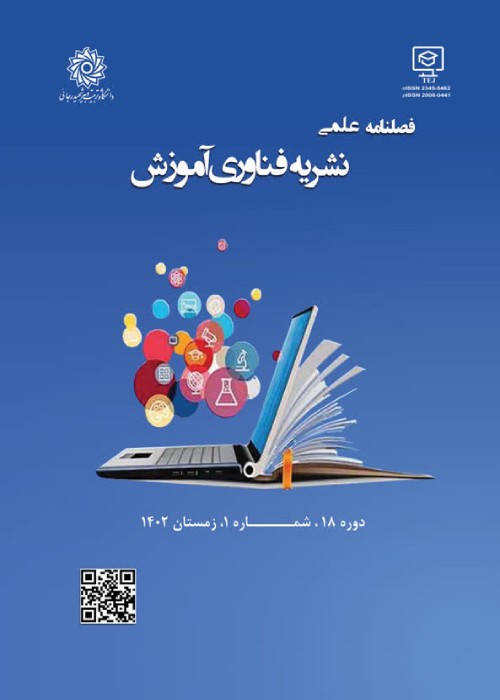The effect of gamification on vocabulary learning (learning English as a second language) among the fifth-grade elementary school students
Teaching English as a second language has grown exponentially in the world over the last two decades with mobile or computer-assisted approaches. New learning technologies have increased their popularity through interactive language learning content in listening, speaking, writing, and comprehension skills and paved the way to increase the learner's control over the learning process, the time and place of learning, or even choosing instructional media and learning activities so that the learner should have the freedom to act, which has led to more personalization of instruction to welcome learning through more technologies. This type of learning may be among their preferences in which the basics of language learning skills are vocabulary learning which can be of significant consideration. In contrast, word-learning in language learning is a dull, boring, and monotonous activity that learners face constantly. At the same time, it is essential and fundamental because other language skills highly depend on vocabulary learning. New learning technologies have also been effective in this area by gamification of the vocabulary learning process and adding elements such as competition, leaderboard, reinforcement and reward programs, feedback, challenges, and the like. They have made learning vocabulary an engaging and enjoyable activity through the instructional design of the learning environment. Vocabulary learning, is a repetitive and tedious activity, the learner must pronounce the word well, understand the explicit and implicit meaning of the word, recognize its usage and function well, write the word correctly, discriminate the root of the word to form different words for the intended functions. All of these add to the complexity and difficulty of vocabulary learning because the number of variables involved is high, and they are interrelated. Vocabulary learning is crucial because its traces in learning other language skills are well recognizable. On the other hand, as the circle of linguistic vocabulary expands, it sometimes becomes difficult for an individual to understand the semantic subtleties of words required to internalize the words; otherwise, they are forgotten. Therefore, based on understanding such problems and difficulties in learners' language learning, educational technology has been considered a helpful solution in this field. Most studies have shown that educational technology is also valuable in terms of emotional and motivational dimensions for cognitive effectiveness and can play an irreplaceable role in gamifying vocabulary learning. With this in mind, this study aimed to investigate the effect of gamification on English vocabulary learning among the fifth-grade Iranian students.
The method in this study was quasi-experimental with a pretest-posttest design and an experimental and a control group. The study population included all fifth-grade elementary school students in Hamadan in the academic year of 2020-2021 (N=8431), of whom a sample size of 40 people was chosen. Convenience sampling method was used and the participants were chosen from the schools whose students had access to a laptop, tablet, smartphone, or personal computer to run the gamification (games developed for vocabulary learning). They were assigned randomly to the experiment group (20) and control (20) one. The data collection tool in this study was the teacher-developed academic test for both pretest and posttest (including 30 four-point questions) and was the same in both groups. The experts` views were used to determine their validity, and also their reliability was calculated based on Cronbach's alpha as 0.78. Descriptive and inferential statistics (covariance test) were used to analyze the data using SPSS software version 22.0.
Based on the analysis of the data, the ratio of f for the independent variable was equal to 5.956, the significance level was 0.02; for the covariate, the f ratio was equal to 0.687, and the significance level was 0.41. It can be said that the effect of intervention in the experimental group was significant, but the impact of covariate was insignificant.
Based on the findings of this study, the pretest scores as covariates had no significant effect on posttest scores, but the impact of the intervention on posttest scores was significant. So, it can be concluded that gamification improved English vocabulary learning (as a second language) among the fifth-grade Iranian students.
- حق عضویت دریافتی صرف حمایت از نشریات عضو و نگهداری، تکمیل و توسعه مگیران میشود.
- پرداخت حق اشتراک و دانلود مقالات اجازه بازنشر آن در سایر رسانههای چاپی و دیجیتال را به کاربر نمیدهد.


